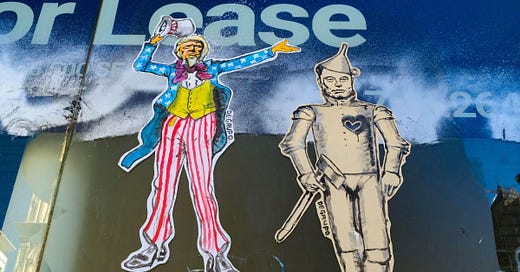For decades, the USA pretended it didn’t have a close relationship with Taiwan, and for decades China pretended not to notice that in fact it did. Donald Trump’s ten-minute phone call with Taiwanese President Tsai put paid to that. Why?
The easy answer is that the president elect doesn’t have the first clue about international relations. A more nuanced explanation is that he’s played a classic Trump card as part of the ‘Art of the deal.’
The 1972 visit by US President Nixon to China led to the 1979 agreement between the two countries. The deal was that the USA accepted Beijing’s one-China policy and so did not diplomatically recognize Taiwan as a sovereign state. China would in return agree not to invade Taiwan but continue to insist it was the legitimate ruler of the island. No American President has spoken directly to his opposite number since.
This was an easy deal for both sides once they could get past their Communist/Capialist ideology. Beijing and Washington were more concerned about the Soviet Union than each other and if Beijing made cosy with Washinton Moscow had to concentrate on both, thus dividing its attention, and military. The Chinese could pretend they had forced a massive compromise from Washington, while the Americans could quietly close their embassy in Taiwan then re-open it calling it the American Institute in Taiwan, an NGO which just happened to be stuffed full of American diplomats from the State Dept. Arms and trade agreements between Taiwan and the USA continued.
So that was the deal then, and it has worked. But this is now.
Now the Soviet Union has gone, Taiwan is the USA’s 9th largest trading partner, and, most importantly Chinese exports have undercut American industry leading to job losses in the USA causing a social crisis and a political backlash. America needs to alter the trade part of the deal. Furthermore, China’s economy is struggling and it desperately needs the Americans to keep buying its goods.
In one unpredictable phone call Donald Trump has unnerved the Chinese leadership. If he’s prepared to upset forty years of a basic diplomatic tenet, who knows what else he might do? Raise tariffs? Go full protectionist?
The Chinese could threaten to pull their massive deposits from American banks, but what would they do with the money? – buy Euros? That doesn’t look too clever at the moment.
China does have cards to play. But a phone call to Taiwan from Mr Trump is not worth showing a hand. Instead Beijing sought to put the blame on Taiwan calling it a ‘trick’ that Tsai had called Trump. This feels like they are buying time while they wait for Trump’s next move to see where he’s taking this.
That ‘The Donald’ was suprised by the communication from Tsai seems unlikely despite his tweet that he had ‘taken’ the congratulatory call. Tsai’s office now says it was arranged in advance. At this point it’s worth noting that the incoming chief of staff Reince Priebus is hawkish on the China/Taiwan issue, and another advisor, Edward J. Feulner, has had ties to Taiwan for decades.
Another piece of the jigsaw is that Tsai is from the Democratic Progressive Party which takes a harder line on independence from China than the Kuomintang party from which she took power earlier this year. New Presidents, new economic times may now equal new policies.
What the phone call seems to signal is – ‘What Nixon gave, Trump can take away’. Beijing is concentrating hard as to what the terms will be to keep the Nixon deal intact, and the goods flowing out.
This article was originally published on The What And The Why and can be read here.
Subscribe to REACTION
Iain Martin and the team make sense of the news, providing commentary and analysis on the stories that matter in politics, geopolitics, economics and culture.










